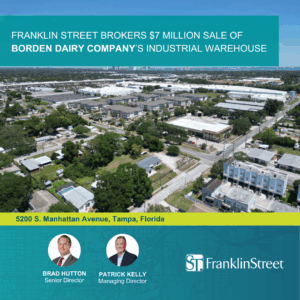Today is the opening day of ICSC’s annual Southeast Conference at the Cobb Galleria Centre in Atlanta. Retailers, developers, lenders, owners, managers, brokers and other retail real estate professionals are gathering for two days of deal making, networking and information sessions related to the retail real estate industry.
Southeast Real Estate Business asked Gullia a few questions about the trends and activity he sees in Atlanta’s retail market. The following is an edited interview:
Southeast Real Estate Business: How will the addition of Buckhead Atlanta, Ponce City Market and Avalon integrate with the existing retail base in Atlanta? What’s happening adjacent to these new developments as far as retail activity?
Gullia: The addition of Buckhead Atlanta, Ponce City Market and Avalon will test the consumer’s appetite for new-to-market retail brands in different types of shopping center offerings. All three projects are integrating first-to-market retailers, very reflective of the trade they serve, alongside more mature brands with existing consumer equity. Each are relying heavily on the developer’s management, marketing and oversight coupled with amenities and activities that promote the center. The owner involvement, planning and design has not typically been seen in our metro shopping centers.
It will be a litmus test for not just how consumers gravitate to the retailers, but also how developers and retailers respond or recycle these new designs, co-tenancy and marketing. How many of these things will be incubated in other centers will be the answer to that success.
The retail activity adjacent to these new developments has been characteristic of the demographics in the area. For example, Restoration Hardware is a perfect fit for the demographics in Buckhead, so it’s not surprising that they decided to capitalize on Buckhead Atlanta by locating across the street. Around Avalon there is higher end housing and office space in the works.
SREB: What makes the new wave of grocers — Sprouts, Earth Fare, The Fresh Market — so attractive? What niche are they filling in Atlanta that isn’t being met by Kroger, Publix, Whole Foods and Trader Joe’s?
Gullia: I believe these really fall into three silos: Kroger and Publix; Whole Foods, Earth Fare and Fresh Market; and Sprouts and Trader Joe’s.
Whole Foods educated consumers on healthy eating and buying organic foods and really blazed a national path for Earth Fare- and Fresh Market-style grocers. Earth Fare and Fresh Market strive to be different with prepared foods, their presentation, less “lotions and potions” and also at a different price point.
As the education about healthy eating continues, people who can’t afford Whole Foods, Earth Fare or Fresh Market, and still want to make only one grocery stop, fall back on what they understand best. Kroger and Publix are already capitalizing on this demand and driving sales at their stores at a more affordable price point. Due to the store size requirement of a Kroger and Publix, they will never be able to slide into some of the tighter markets and sites.
Trader Joe’s and Sprouts require a much smaller footprint so they are able to be accommodated in smaller locations in tighter densities on more densely developed sites. Both Trader Joe’s and Sprouts end up being more convenient but do require a second stop for such things as paper products or kitchen supplies. Sprouts is heavy in perishables and is building equity in that offering. Trader Joe’s has consumer recognition with house brands, dry and packaged goods and wine and beer.
SREB: What kind of retailers are occupying existing vacant space at shopping centers in the greater Atlanta area?
Gullia: There’s actually not a lot of prime vacant space throughout the country or Atlanta. The national vacancy rate averages about 10.3 percent, but my guess is that only about half of that space is truly desirable. There’s a lot of retail space out there that likely won’t be filled in short order either. If you eliminate that, the retailers absorbing space are these smaller grocery stores, quick-service restaurants and stores that don’t have a lot of Internet sales exposure such as fashion and service retail. Of course that staple of value and discount retailers is still strong, too.
SREB: As a resident of Atlanta, what new or revamped retail offerings do you find exciting?
Gullia: It’s exciting for me to see so many new, first-to-market retailers at projects as different as those coming on line. There are still so many great retail brands that have yet to come to the Southeast. Private equity is a more visible retail incubator than in the past and its involvement is really pushing some growth. Franklin Street is in talks to bring several new retailers to Georgia. We are excited about these opportunities in the industry and the geography we cover.



